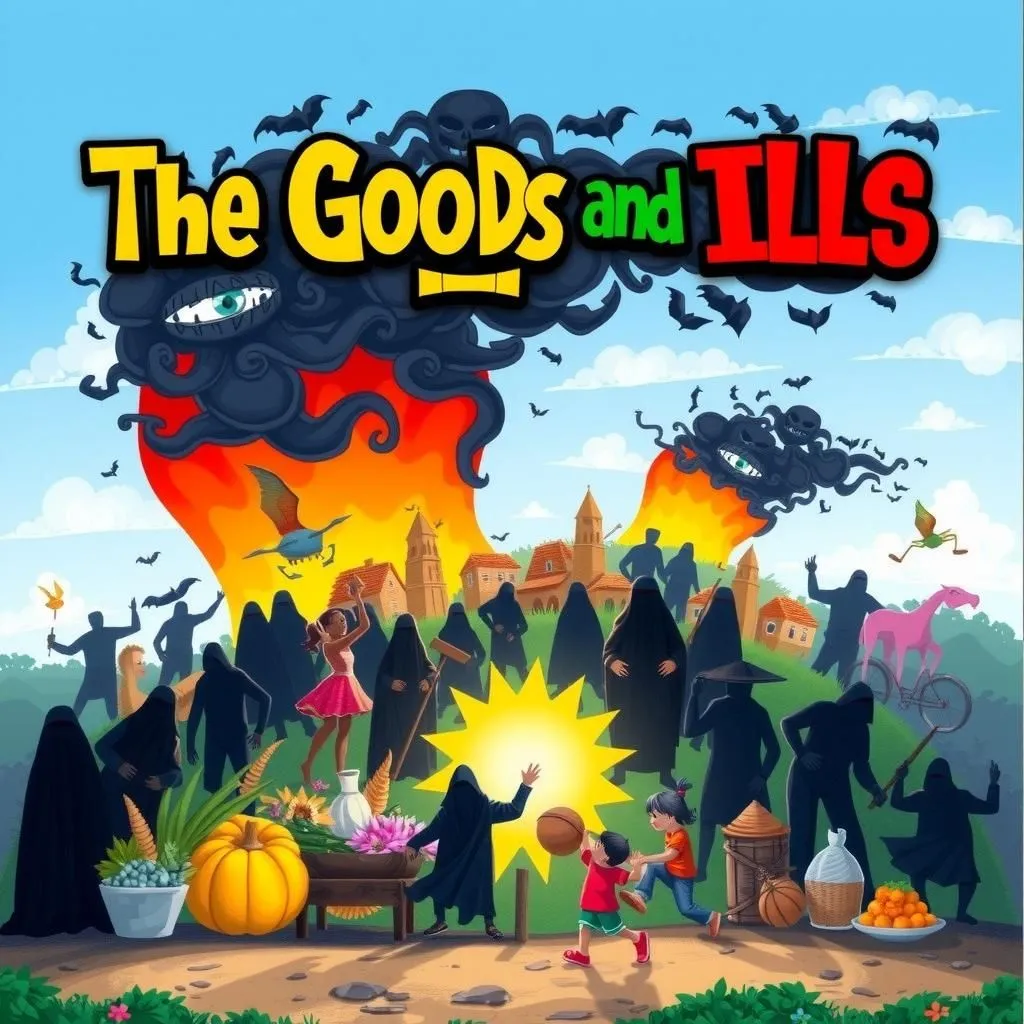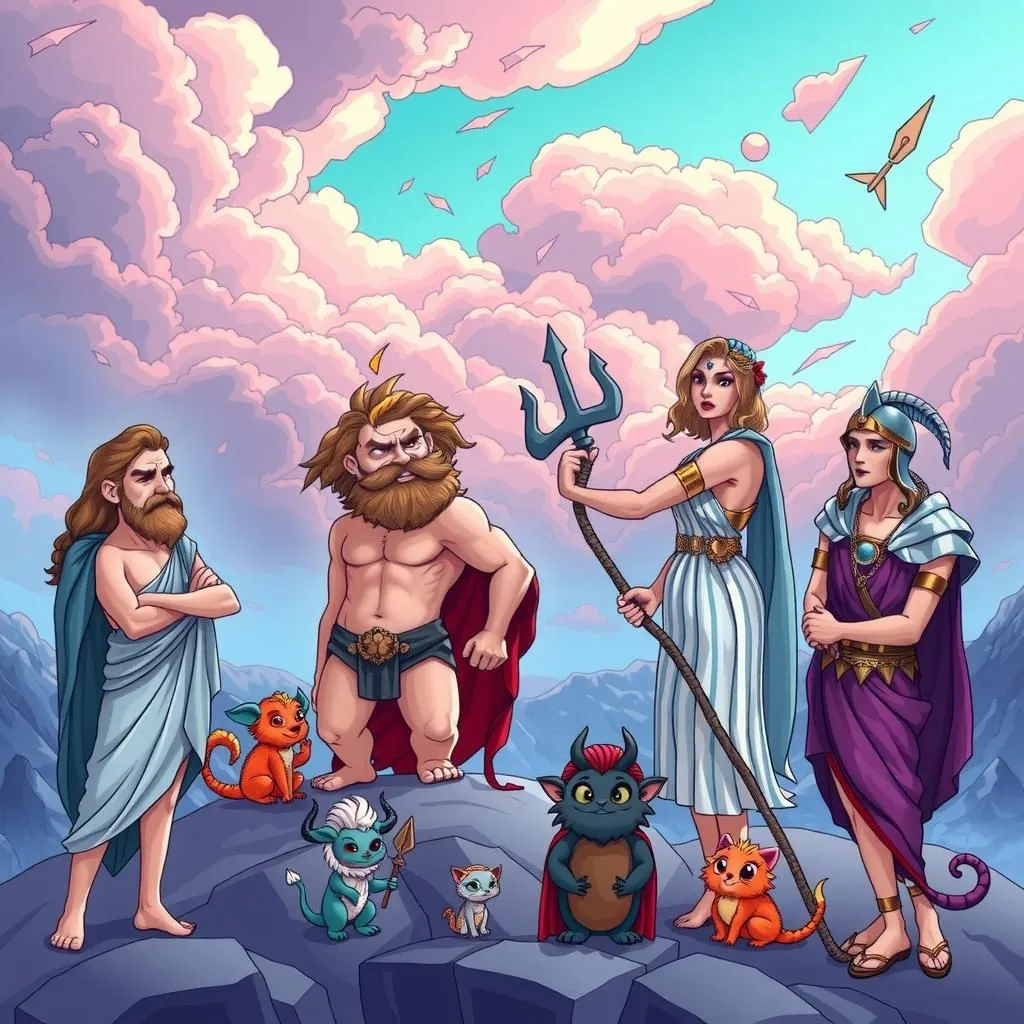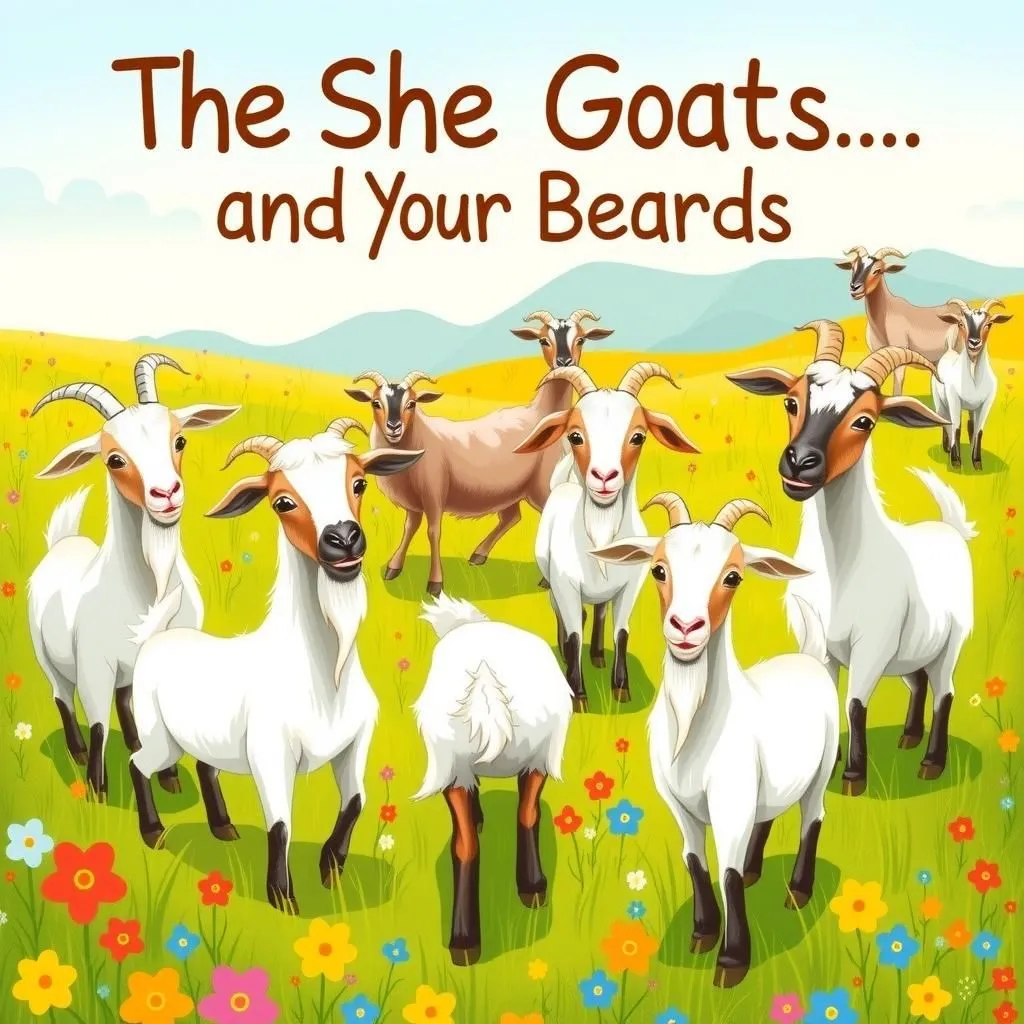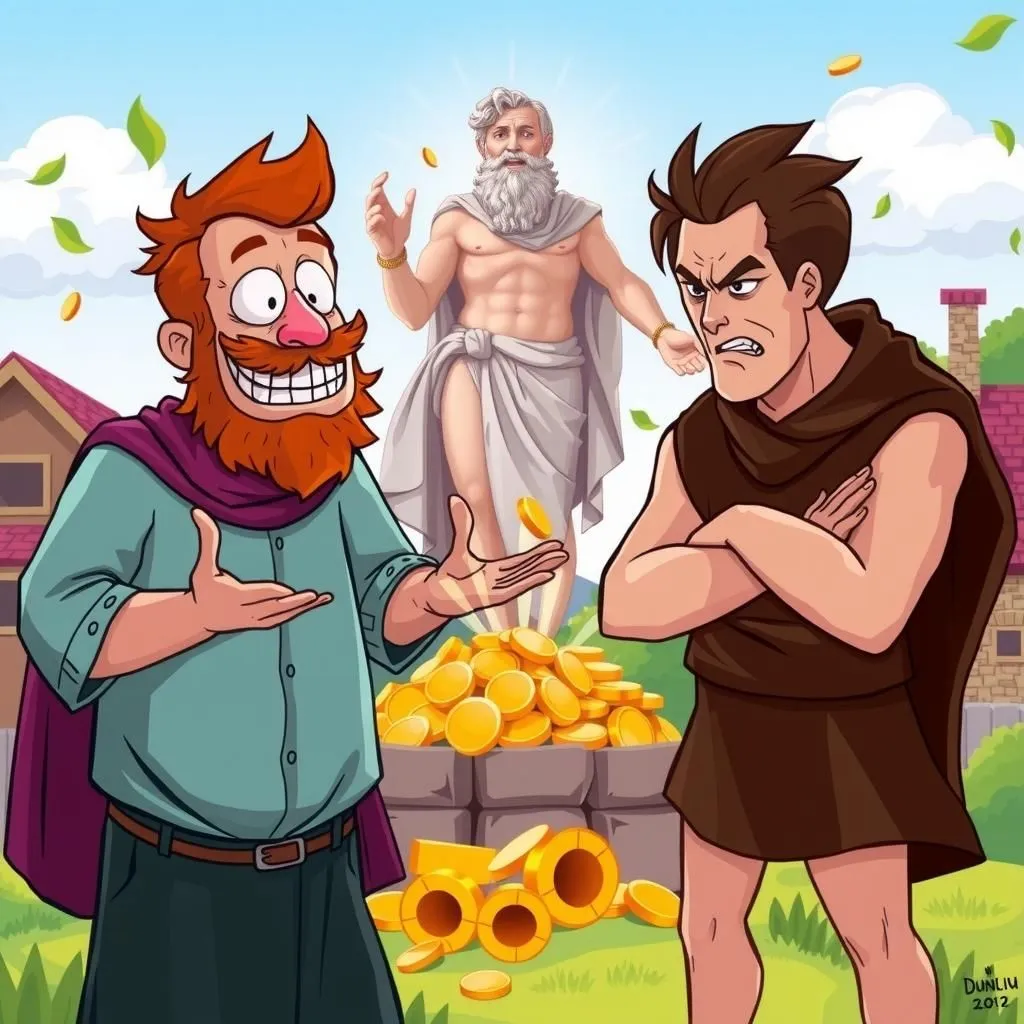
The Goods and the Ills
In "The Goods and the Ills," a culturally significant moral story, the Goods are expelled from their rightful place in humanity by the Ills, who, due to their overwhelming numbers, dominate the earth. Seeking justice, the Goods appeal to Jupiter, who decrees that the Ills will arrive in groups while the Goods will come individually, resulting in a world where Ills are abundant and Goods are scarce, given only to those who can recognize their true value. This short story with moral lessons highlights the importance of discernment and the challenges of recognizing goodness amidst adversity.


